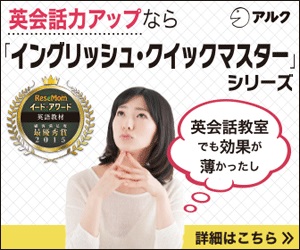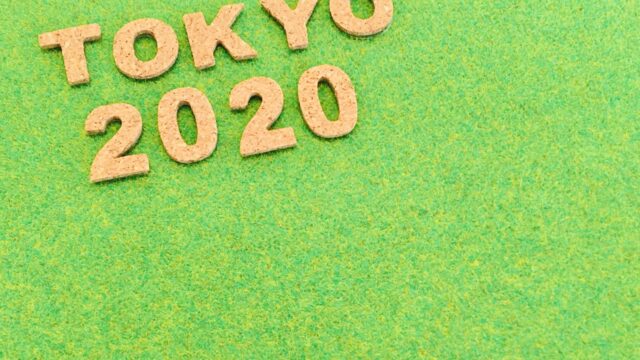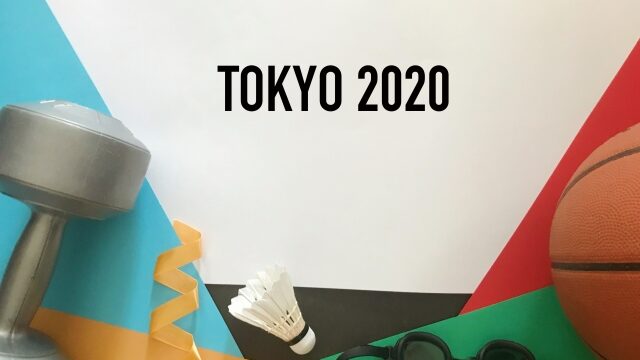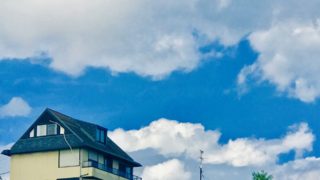
東日本大震災から9年の時が経ちました。オリンピック誘致や開催が近づくにつれ福島原発事故に関するニュースをまた見かけるようにもなり(元々あまりニュースをチェックする方ではなく、近頃意識的に見ているからというだけなのかもしれませんが)、今でもまだ終わった話、過ぎた話になったわけではないんだと感じていました。ただそれでもなんとなくその記事を読んでいるだけというしょうもない人間が私なのですが、VOA Learning Englishに3月11日に福島に関する記事を見つけました。
私がVOAでニュースを読んでいるのは英語の勉強のため、訳しているのはVOAが英語学習に役立つことを知ってもらったうえで英語の学習に役立ててもらえたら嬉しいからです。そこに加えてこの記事から福島で今起きていることを知り、海外でこのように報道されているということを知ってほしいです。(そこからどのような感想をもつかは読んでくれた人の自由です。)
少しでも英語学習に役立ててもらいつつ、海外でどう報道されているのか意識してみると面白いのかなと思っているので、日本に関する記事は積極的に訳していければと思っています。
本記事のURLです⇨https://learningenglish.voanews.com/a/japan-struggles-with-cleanup-of-fukushima-disaster/5323271.html(こちらからリスニング用音源も聞くことができます。)
では読んでいってください!
Japan Struggles with Cleanup of Fukushima Disaster( 日本は福島の災害の浄化に取り組む)
March 11, 2020
The Japanese government, citizens and groups are debating what to do with radioactive water from the disabled nuclear power center near Fukushima.
(日本政府と市民、団体は福島の停止している原子力発電所の放射能汚染水の扱い方を議論しています。)
An earthquake and tsunami on March 11, 2011 caused severe damage to three of the six nuclear reactors at the Fukushima Daiichi Nuclear Power Plant. Since then, Japanese officials have been struggling to contain and clean up the damage.
(2011年3月11日に発生した地震と津波は、福島第一原子力発電所の6つのうち3つの原子炉に深刻なダメージを与えました。それ以来、日本当局はその損害を抑え、浄化する努力をしています。)
The Associated Press recently observed the decontamination process taking place there. Officials are trying to decide what to do with 1.2 million tons of radioactive water being stored at Fukushima.
(AP通信は近頃、そこで行われた除染の経過を観察しました。当局は福島に保存されている120万トンの放射能汚染水をどう扱うべきか決めようとしています。)
The nuclear center is operated by the Tokyo Electric Power Co., or TEPCO. The company says it needs to free up space as work on the damaged reactors reaches an important point.
(原子力センターは東京電力(TEPCO)によって運営されています。同社は、損傷した原子炉での作業が重要なポイントに達したとき、スペースを確保する必要があると述べました。)
Many people expect TEPCO to slowly release the water into the ocean near the nuclear centers. The government has already approved the plan. However, it is not clear when the company will carry out the plan.
(多くの人々が東京電力は原子力センターの近くの海にその水を徐々に放出するだろうと思っています。政府はすでにその計画を承認しています。しかしながら、同社がその計画をいつ実行するのかは明確ではありません。)
Local people oppose it because releasing the water into the nearby sea could hurt fisheries. Sales of fish caught off the coast near Fukushima are 50 percent of what they were before the nuclear disaster. Fish caught in the area have been approved for sale after radioactivity testing by health officials.
(地元の人々はそれに反対しています。なぜなら近くの海にその水を放出すると漁場を傷つける可能性があるからです。福島沿岸でとれた魚の売り上げは原発事故の前の50%です。その地域でとれた魚は保険当局による放射能検査の後、販売が認可されています。)
TEPCO Chief Decommissioning Officer Akira Ono said the water must be removed. He says crews need the space currently occupied by the water tanks. In their place, workers will set up structures to hold melted reactor wreckage.
(東京電力廃炉・汚染水対策最高責任者の小野明氏は、その水を除去しなければならないと述べました。同氏は、作業員はその水のタンクを置くことができる確実なスペースを必要としていると述べています。それらの代わりに、溶けた原子炉の残骸を保存するための建造物を設置するようです。)
Workers are planning to remove wreckage of the melted reactor by December 2021. Special equipment is taking apart Unit 2. Radioactive waste is being removed from Unit 3. People wear protective clothing and head coverings to work in all but the most radioactive areas around the nuclear center.
(担当者たちは2021年12月までに溶けた原子炉の残骸を取り除くことを計画しています。特別な機器が2号機を解体しています。3号機からは放射性廃棄物が取り除かれています。人々は原子力センターで最も高い放射線量のある区域以外の場所で作業をするために防護服とヘッドカバーを身につけています。)
But underground, conditions remain dangerous and radioactive water is leaking from the melted reactors and mixing with groundwater. This water is being pumped into containers to keep it from flowing into the sea.
(しかし、地下は未だに危険な状況で、放射能汚染水は溶けた原子炉から漏れており、地下水と混ざっています。この水は海に流れていくことを防ぐために組み上げられています。)
The contaminated water from underground is processed and filtered to remove dangerous radioactive elements. Tritium is the only radioactive material that remains. Japan’s industry ministry and nuclear officials say tritium is not harmful in small amounts.
(その地下からの汚染水は危険な放射性元素を取り除くために処理され、ろ過されています。トリチウムは唯一残る放射性元素です。日本の産業省と原子力当局はトリチウムは少量なら害はないと述べています。)
However, although officials try to ease public fear, there are worries that fish might be affected if the water is released into the sea.
(しかし、当局が社会不安を和らげようとしているとは言え、その水が海に放出されたら魚に影響があるかもしれないという不安があります。)
Katsumi Shozugawa is a radiology expert at the University of Tokyo. He has been studying the underground water around the nuclear center. He said long-term results of low-level exposure to radioactivity in the food chain has not been fully studied.
(小豆川勝見氏は東京大学の放射線学の専門家です。彼は原子力センター周辺の地下水の研究をしています。同氏は食物連鎖における低レベルの被曝が長期間どのような結果になるかは十分に研究がされていないと述べました。)
“At this point it is difficult to predict risk,” he said. “Once the water is released into the environment, it will be very difficult to follow up and monitor its movement.”
(「この時点でリスクを予測することは難しい。」と同氏は述べました。「一旦その水が周囲に放出されると、その動きを追跡し監視することはとても難しいだろう。」と述べました。)
After years of discussions, a government group released a report earlier this year. It proposed two possible ways to dispose of the treated water. One method would mix treated water with fresh water and release it into the ocean. A second method would permit the water to dry up over time.
(長年の議論のあと、政府のグループは今年はじめに報告書を発表しました。その処理される水を廃棄する方法が2つあることを提示しました。1つ目は処理される水と真水を混ぜて海に放出する方法です。2つ目はその水を時間とともに蒸発させるという方法です。)
The report also urged the government to do more to fight the “reputational damage” done to Fukushima’s fishing and farming products.
(またその報告では、福島の漁業と農産物に対してなされる「風評被害」と戦うためにより一層行動するよう政府に促しました。)
TEPCO and government officials have said they will treat the water a second time to meet legal requirements before any release.
(東京電力と政府当局はその水を放出する前に法的要件に合わせるために2度の処理を行うと述べました。)
Masumi Kowata lives in Okuma, a town close to the nuclear center. She said some of her neighbors are offering their land as a place to put more water storage tanks.
(木幡ますみさんは原子力センターの近くにある町である大熊町に住んでいます。彼女は近隣の人々の何人かがより多くの貯水タンクを置くための場所として土地を提供していると語りました。)
“We should not dump the water until we have proof about its safety,” she said. “The government says it’s safe, but how do we know?”
(「安全性が証明されるまではその水を捨てるべきではない。」と彼女は語りました。「政府は安全だと言いますが、私たちはどうしてそれが分かるでしょう。」)
I’m Mario Ritter Jr.
(マリオ・リッター・ジュニアでした。)
Mari Yamaguchi reported this story for the Associated Press. Mario Ritter Jr. adapted it for VOA Learning English. Caty Weaver was the editor.
(山口真理がAP通信でこの話を報告しました。マリオ・リッター・ジュニアがそれをVOA Learning Englishに適合させました。キャティ・ウィーバーが編集者でした。)
少し政治がからんだ話なので、その辺りがデリケートな気がしますが、この記事がVOAに投稿されていることが事実でそれ以上でもそれ以下でもないと思っておくことにします。
最後まで読んでいただきありがとうございました!また別の記事も読んでもらえたら嬉しいです!
VOA Learning English の本記事のURL⇨https://learningenglish.voanews.com/a/japan-struggles-with-cleanup-of-fukushima-disaster/5323271.html








